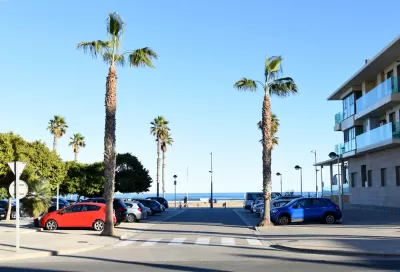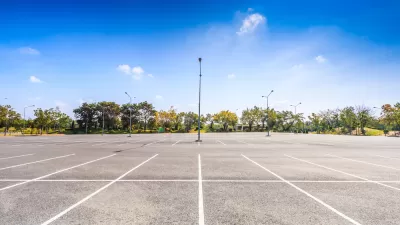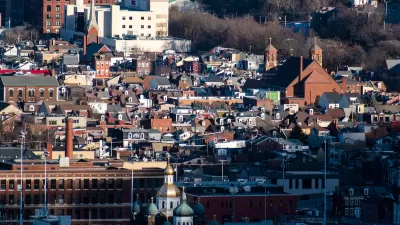The city’s decision to reinstate parking requirements for housing developments will likely slow the recent boom of ‘missing middle housing’ construction.

While other cities are moving to eliminate minimum parking requirements, Miami recently took a step in the other direction, requiring developers to adhere once again to parking minimums and removing city planners’ ability to issue waivers for projects located near transit.
According to Henry Grabar, writing in Slate, the 4-1 vote by the City Commission happened in a “peculiar fashion” and in opposition to the planning board’s 9-2 vote to keep the parking requirement suspension in place: “There was no study, no official rationale, and no sponsor who wanted to take credit.” Now, “Each new Miami apartment will once again be required to come with 1.5 parking stalls, rounded up, whether residents want them or not. The cost of building those spaces, spread across fewer units, will wind up raising rents—if the law doesn’t kill off projects altogether.”
Whatever the reason for the Commission’s decision, Grabar writes, “The decision will likely mark the end of Miami’s boomlet of ‘missing middle’ housing—the small buildings on small lots by small developers that have begun to densify and enliven the city’s core neighborhoods—and provide a cheaper alternative to most new construction.”
“[F]or the smaller players whose projects filled in vacant lots in the city’s core neighborhoods, the risk of waiting a year just to have an idea turned down may simply be too great.”
FULL STORY: How Miami Decided Parking Is More Important Than Housing

Montreal Mall to Become 6,000 Housing Units
Place Versailles will be transformed into a mixed-use complex over the next 25 years.

Planetizen Federal Action Tracker
A weekly monitor of how Trump’s orders and actions are impacting planners and planning in America.

DARTSpace Platform Streamlines Dallas TOD Application Process
The Dallas transit agency hopes a shorter permitting timeline will boost transit-oriented development around rail stations.

Interactive Map Reveals America's “Shade Deserts”
Launched by UCLA and American Forests to combat heat-related deaths, the tool maps the shade infrastructure for over 360 U.S. cities.

Bicycles and Books — In Sacramento, Libraries Now Offer Both
Adult library card holders can check out e-bikes and e-trikes for up to one week.

Colorado Landfills Emit as Much Pollution as 1M Cars
Landfills are the third-largest source of methane pollution in Colorado, after agriculture and fossil fuel extraction.
Urban Design for Planners 1: Software Tools
This six-course series explores essential urban design concepts using open source software and equips planners with the tools they need to participate fully in the urban design process.
Planning for Universal Design
Learn the tools for implementing Universal Design in planning regulations.
City of Mt Shasta
City of Camden Redevelopment Agency
City of Astoria
Transportation Research & Education Center (TREC) at Portland State University
City of Camden Redevelopment Agency
Municipality of Princeton (NJ)
Regional Transportation Commission of Southern Nevada





























